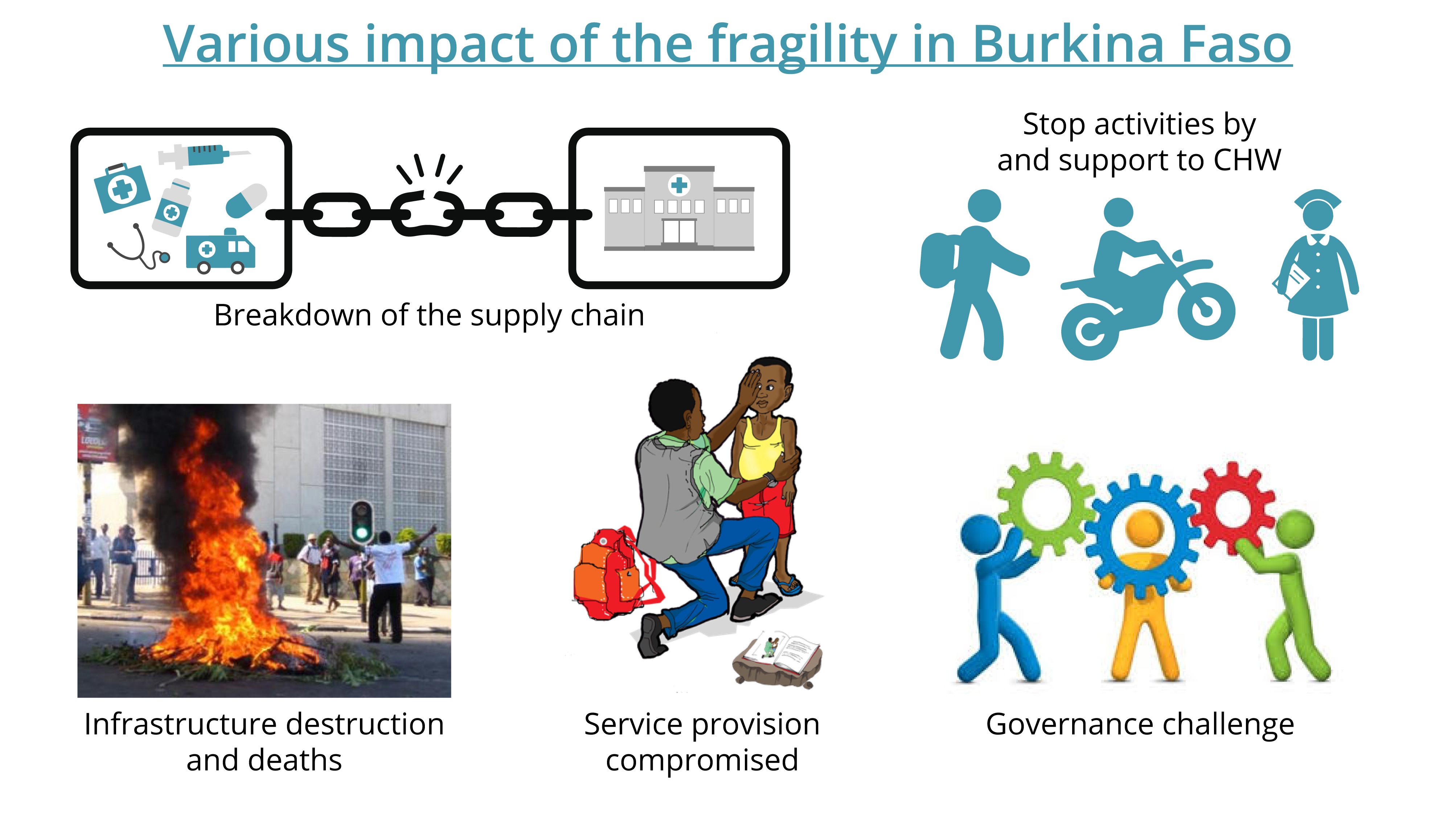By Preety Rajbangshi, Adalbert Tchetchia, Millimouna Tamba Mina, Alyos Zongo and Sanghita Bhattacharyya
Background
The 2nd International Symposium on Community Health Workers (CHW) was held in Dhaka, Bangladesh from 22-24 November 2019 around the theme “Evolving health system to achieve universal health coverage through CHWs”. Under this broad theme, there were four subthemes and one was specifically dedicated to CHWs in special situations with aspects related to urban contexts, conflict and humanitarian crisis.
The Community Health Community of Practice (CH-CoP) took part in this symposium by setting up a panel on the theme “Community health workers in fragile settings: Experiences from global south”. The CoP used the Collectivity platform to respond to the call for abstract where members of this platform sent their ideas and country experiences. After a selection process, a multi-country panel comprising of researchers and practitioners from Burkina Faso, Guinea, Cameroon and India was constituted.
Country experiences
The panellists from West and Central Africa (Aloys and Adalbert) presented fragilization faced by CHWs in Burkina Faso and Cameroon to deliver services such as destruction of infrastructure, poor governance, breakdown of supply chain and support to CHW, and effect of these factors on service provision. Alongside this, the panellists presented initiatives and mechanisms undertaken locally at the health system and community level to improve service delivery through CHWs in fragile settings. Concurrently, the presentation on Guinea by Mina highlighted that CHWs can lose or gain credibility when the health system becomes untrustworthy and weakened in fragile settings. He finally presented the community’s response to the Ebola outbreak and the contribution of local actors including community-based organizations (CBO), leaders to stop the spread of the outbreak.

The experience from South Asia by Preety focused on distinct challenges and vulnerabilities of CHWs working in fragile settings. She presented case studies from India to highlight the plight of CHWs to provide health services during and after conflict and their increased vulnerabilities to violence due to the breakdown of social relations, emotional and physical trauma.
All four countries experiences highlight that CHWs, other community actors including families are important for delivering and promoting health services in fragile settings. However, there is a need to strengthen the support mechanism for CHWs in settings characterized by fragility. Moreover, there is a need for policies that create enabling environment for local actors to provide support to CHWs in terms of education, employment, housing or nutrition.
Way forward
The motivation behind this panel demonstrates the nascent effort to initiate discourses in the global public health community towards CHWs working in fragile settings and the need to develop strategies and frameworks to support them. Besides CHWs, it outlined the need to take into account a holistic approach of community health where CHWs are in interaction with leaders, community-based organizations and other entities of society. We need more cross national evidences, best practices particularly from Global South and the learning’s (including the challenges) will help countries in devising implementation strategies and modify their operational guidelines. Our CH-CoP can play a key role in documenting experiences from known and unknown settings, which can help countries in contextualizing and adapting strategies that can be linked with the global call to operationalize CHWs within the community health system.

Please also read blog the published in the International Health Policies Network on the theme: “Community health in fragile settings: On the interaction between Community Health Workers and other local actors”.




